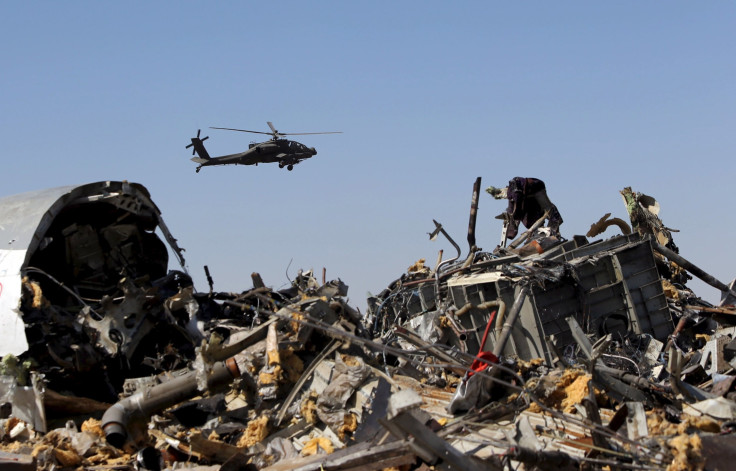Russian Plane Crash 'More Likely Than Not' Caused By Bomb On Board: David Cameron

British Prime Minister David Cameron has said it was “more likely than not” that the Russian airliner that crashed in Egypt Saturday was brought down by a bomb, the Guardian reported Thursday. The news comes a day after British officials canceled all flights leaving for Egypt’s Sinai region amid security concerns.
“The decisions that I am taking are about putting the safety of British people first,” Cameron said, defending Downing Street's decision. “That is why we have suspended flights to Sharm el-Sheikh and that is why it is going to take some time before we can fly people out.”
Egypt’s foreign ministry criticized the decision to suspend flights, arguing that British officials should have first consulted Cairo. Cameron’s comments were the first by a head of state citing an explosive as the likely cause of Saturday’s fatal plane crash.
Cameron to discuss Russian plane crash in Sinai in phone call with Vladimir Putin https://t.co/6b9A3RuOeO
— The Independent (@Independent) November 5, 2015The Metrojet Airbus A321 crashed Saturday in the Sinai Peninsula soon after its departure from the Egyptian resort town of Sharm el-Sheikh. None of the 224 passengers on board the flight survived. Various theories have been considered for what may have been the cause, but officials have said it will take time to know for sure. Egypt continues to maintain there is little evidence pointing to a terrorist attack, but security analysts have increasingly raised concerns that someone may have managed to take an explosive device on board.
Cameron: British officials not certain #Russia plane was bombed, but it's a "strong possibility."
— Neil MacFarquhar (@NeilMacFarquhar) November 5, 2015The Sinai Province, an Egyptian militant group that has pledged allegiance to the Islamic State group, also known as ISIS, has taken responsibility for the crash. A video released Wednesday appeared to show militants in an ISIS stronghold in Iraq celebrating the deaths, as they greeted passersby with bowls of candy and wide smiles. The Egyptian president has called the militant group's claim of responsibility “propaganda,” as officials said they did not believe ISIS had the means to bring down an airliner.
Russia intervened in Syria in late September, largely to help bolster the embattled Syrian regime. While many of its airstrikes have been focused against rebel groups, including some backed by Western governments, the Russian campaign has also targeted ISIS fighters. Militants with the group have repeatedly vowed revenge against Russia.
© Copyright IBTimes 2024. All rights reserved.












